

BILT Alliance Advisory Report 2025

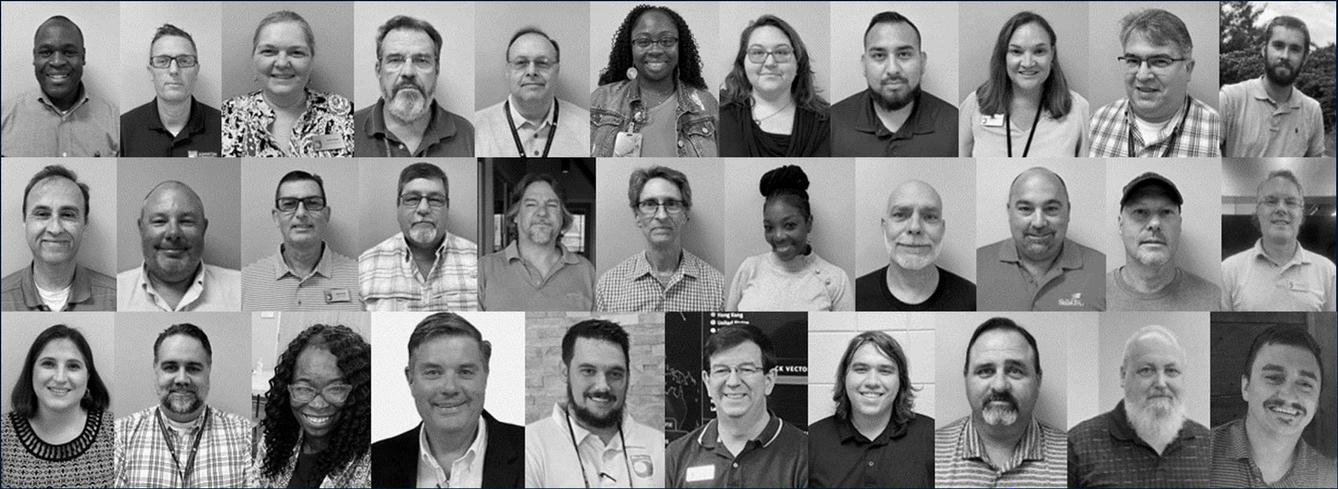





Executive Summary (continued)
Next Steps for 2025–2026
1.Share Findings Widely–This report will be distributed to faculty, staff, and industry partners to guide continuous alignment.
2 Revise KSAs–Each program will refine its KSA list for the 2025–2026 cycle based on industry partner feedback and faculty reflection.
3.Grow Industry Participation–Priority focus will be expanding sample sizes in underrepresented programs to strengthen data vali dity.
4.Promote Broader Adoption–By showcasing results, JCC seeks to expand the BILT Model to additional programs across campus.
Strategic Impact for JCC
The strategic impact for JCC is significant. It elevates workforce alignment by positioning the college as a regional leader in employerdriven curriculum design. It strengthens grant competitiveness by demonstrating responsiveness to industry, which reinforces eligibility for NSF ATE, Perkins, and system-level funding. It also enhances institutional reputation, setting JCC apart within the North Carolina Community College System as an innovator in employer engagement. Most importantly, it supports student successby ensuring graduates leave JCC equipped not only with strong technical competencies but also with the soft skills and adaptability that employers demand
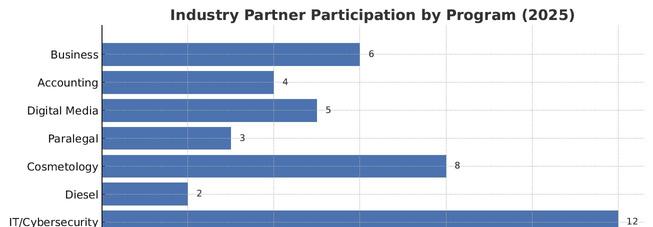
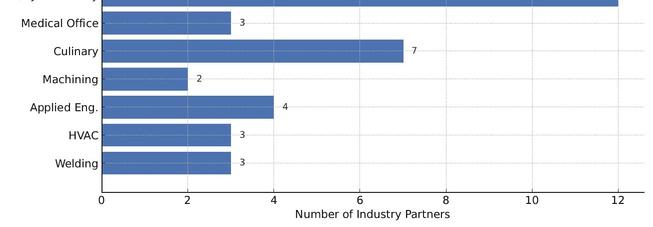


Introduction
Message from the Associate Vice-President, Brian Worley
Dear Colleagues, Industry Partners, and Esteemed Stakeholders,
It is my pleasure to welcome you to this comprehensive report detailing the implementation of the Business and Industry Leadership Teams (BILT) Model at Johnston Community College This initiative represents our continued commitment to enhancing workforce readiness, aligning educational programs with industry standards, and ensuring that our graduates are equipped with the skills, knowledge, and abilities most relevant to their chosen fields
The implementation of the BILT Model at Johnston Community College is a significant step forward in strengthening our partnerships with industry leaders and enhancing the quality of our programs. By leveraging real-time feedback from experts actively engaged in their fields, we are able to ensure our curricula remain relevant, responsive, and aligned with evolving workforce demands. This approach is critical to our mission of providing high-quality, industrydriven education that meets the needs of both employers and students.
I would like to extend my deepest appreciation to our dedicated faculty and staff who have worked tirelessly to incorporate the BILT Model into their programs. Your commitment to excellence and willingness to innovate have been instrumental to this effort Additionally, I want to acknowledge our industry partners, whose invaluable insights and guidance have been essential to the success of this initiative. Your participation in our KSA assessments and ongoing collaboration will continue to drive the positive outcomes we seek.
Thank you all for your dedication, collaboration, and commitment to the success of Johnston Community College and the students we serve I look forward to the continued growth and evolution of our programs as we work together to achieve our shared goals
Sincerely,



AssociateVP,Advanced Manufacturing Facility






Background of the BILT Model
History and Purpose of the BILT Model

The Business and Industry Leadership Teams (BILT) Model was developed to address the growing need for stronger partnerships between educational institutions and industry leaders. Spearheaded by Dr. Ann Beheler, this innovative approach emphasizes the importance of ongoing collaboration with employers to ensure that academic programs are aligned with current workforce demands.
The BILT Model was designed with the understanding that industries are continuously evolving, driven by technological advancements, market dynamics, and emerging trends In order to effectively prepare students for successful careers, educational institutions must remain adaptable and responsive to these changes. The BILT Model offers a structured framework to achieve this goal through regular, meaningful engagement with industry professionals.
Overview of the BILT Model Framework
By Dr. Ann Beheler, Principal Investigator, Pathways to Innovation


While every community college program seeks to guide students toward completion of certificates and degrees that will preparethem for employment, too often there is a mismatch between what employers need and what our curriculum teaches. The answer lies in getting local businessand industry experts to actively participate in the process of steering coursework The Business & Industry Leadership Team (BILT) model is a proven method for strategic employer engagement supported by the National Science Foundation Advanced Technological Education program.
A BILT is different from a traditional business advisory committee (BAC) that might only convene once a year to approve curriculum presented by faculty. The BILT model insists that business and industry experts “co-lead” programs and validate the job skills students will learn In other words, while a BAC advises, a BILT leads.
(1) Ryan Bradshaw, Dr. Ann Beheler, and Brian Worley at Collins College, Ft Worth, TX , studying the BILT Model (2)Ryan Bradshaw and Dr Ann Beheler at HI-TEC 2024 in Kansas City, MO (3)Brian Worley with Dr Beheler at HI-TEC 2025 in Minneapolis, MN





Six Essential Elements for Success
Six elements are essential to the success of BILTs. Review the list below and think about the relationship your college has with its advisory committee. Is your program doing enough to keep business and industry engaged?
1.Frequent Meetings
At JCC, we intend to have a fall and spring BILT Advisory meeting, with a few virtual check-ins throughout the year Our goal first and foremost is to not be a burden on our industry partners. We want to work with those partners to create programming that better aligns with their needs, which is a win for everyone: students, faculty, industry, and the community.
2.Trends Discussion
Set aside time each meeting to allow your employers to discuss the trends they’re seeing in industry. This is a good way to let them share their perspectives on the current and future state of workforce and employability skills, which can help keep your program current.
3.FacultyAttendance
This may seem obvious, but some colleges limit attendance at the employer meetings to a select few. It’s important that faculty hear first-hand the perspectives, forecasts, and needs of the industry without the intermediary of meeting minutes or second-hand summaries. Faculty are teaching the skills employers want. They need every opportunity to understand those skills as clearly as possible.

Credit: Dr Ann Beheler, Principal Investigator, Pathways to Innovation
4.Job SkillsValidation
Once a year, convene your BILT to discuss the job skills (also called “KSAs” for knowledge, skills, and abilities) they want to see in an entrylevel worker in the next 12–36 months. This will require a longer meeting, but this structured validation process lies at the heart of the BILT model. Your employers are on the front lines of industry and know best which job skills are important and which skills are out-of-date. Use these experts to guide your curriculum. Be sure your BILT members are the people who understand the jobs your students will be seeking: highlevel technical executives, first-line hiring managers, and the technicians themselves.
5.FacultyCrosswalk
Employer priorities resulting from the KSA analysis, including the rich discussion that accompanies it, provide faculty a clearer perspective from which to evaluate curriculum. Faculty use these industry priorities to map desired skills to the program’s coursework, ensuring that what the BILT calls for is what the curriculum teaches. If there are gaps, adjustments can often be made incrementally by elevating or reducing coverage of individual topics or adding modules addressing emerging areas. If gaps are wide, a new course or significant updating of an existing course may be recommended
6.Provide Feedback
BILT members need to feel valued, so take time to let them know how you implemented their recommendations. Even if you can’t do what they ask, let them know. In some cases, the BILT can find a solution to your problem. Keep in mind that if you ignore their suggestions or make them feel unheard, you run the risk of losing their interest and engagement.

Purpose: Strengthening Curriculum Through Employer Engagement and Industry-Driven KSAs
The primary purpose of the BILT Model is to bridge the gap between education and industry by creating a dynamic, collaborative process that ensures academic programs remain relevant and responsive. By involving industry leaders in the development and refinement of curricula, educational institutions are better positioned to:
Identify Critical KSAs:Industry partners help define the most essential KSAs that students must possess to excel in their careers.
Align Curricula with Market Needs:Programs are tailored to meet the evolving demands of employers, ensuring students are equipped with up-to-date knowledge and skills.
Promote Workforce Readiness:By incorporating industry-driven KSAs into program design, students graduate with the competencies most valued by employers, enhancing their employability and career prospects.
Benefits: Industry Relevance, Up-to-Date Curricula, Workforce Readiness

Credit: Dr Ann Beheler, Principal Investigator, Pathways to Innovation
The BILT Model offers numerous benefits to educational institutions, students, and industry partners alike. Some of the most significant advantages include:
Industry Relevance:Curriculum development is guided by realtime industry feedback, ensuring alignment with current standards and practices.
Up-to-Date Curricula:Programs are regularly reviewed and updated based on employer input, maintaining relevance in a rapidly changing workforce landscape.
Workforce Readiness:Students acquire the KSAs most valued by employers, resulting in higher job placement rates and career success.
Stronger Partnerships:The collaborative process fosters stronger relationships between educational institutions and industry leaders, creating opportunities for internships, mentorships, and career pathways.
Sustainability:The continuous feedback loop established by the BILT Model promotes long-term curriculum effectiveness and adaptability.


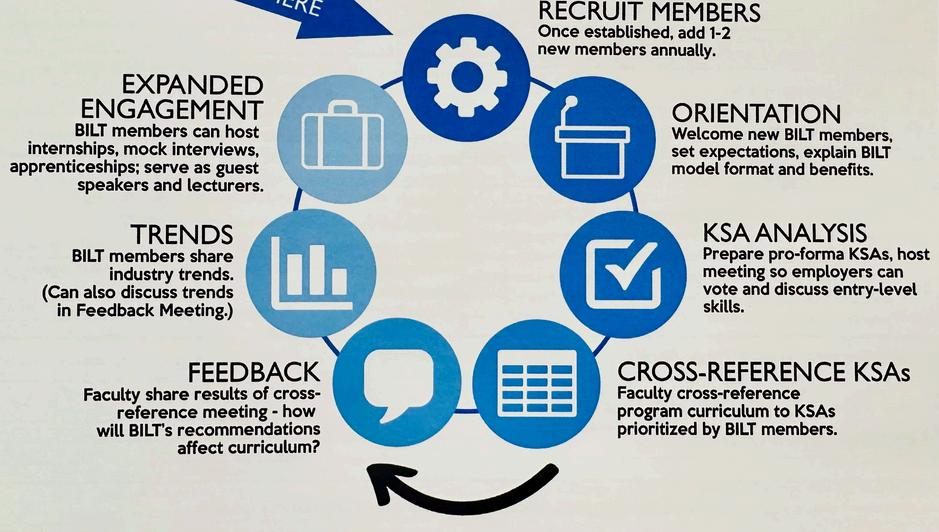
The Annual BILT Model Advisory Cycle
As illustrated in the graphic, the BILT Model is designed to be a more data-driven approach to advisory committees, where industry partners or subject-matter experts (SMEs) provide input on the essential and nonessential components of a program. This allows faculty to be highly responsive to industry needs and helps the program evolve over time to better align with current expectations and workforce demands.
We do this using KSAs Knowledge, Skills, and Abilities which identify key knowledge areas within a program. SMEs then vote on a 1–4 scale to indicate the importance of each KSA (see scale below):
KSA Rankings:
–The KSA must be included in the curriculum
–The KSA really should be included in the curriculum –It would be nice for the KSA to be included in the curriculum
–The KSA can be left out of the curriculum entirely


Program Overview, Highlights, & KSA Assessment Data


Thefollowing section provides a comprehensive overview of eachprogramparticipating in the Business and Industry Leadership Teams (BILT) Model rollout at Johnston Community College. By integrating program highlights, KSA assessment data, and the practical application of this data, we aim to present a clear and detailed account of how each discipline is responding to the evolving demands of industry partners.
Through the BILT Model framework, faculty members have engaged in meaningful collaboration with industry leaders to assess and prioritize the Knowledge, Skills, and Abilities (KSAs) necessary for workforce readiness. This process has resulted in targeted curriculum improvements designed to enhance student outcomes and ensure alignment with current industry standards. For each program, this section will include:
Program Overview:A brief description of the program’s purpose, scope, and key offerings.

Recent Highlights:Notable achievements, innovations, and developments within the program.
KSA Assessment Data:Summary of the KSA assessment process, including key findings and trends identified through industry engagement.
Application of KSA Data:How the assessment data is being utilized to enhance curriculum design, instructional strategies, and overall program quality
The integration of these elements demonstrates the proactive steps Johnston Community College is taking to provide students with the skills and knowledge most valued by employers. Additionally, it highlights the effectiveness of the BILT Model as a dynamic, collaborative approach to curriculum development and continuous improvement.
Business Administration
Overview:
TheBusiness AdministraƟon program at Johnston Community College (JCC) in Smithfield, North
Carolina, is designed to provide students with a comprehensive understanding of the free enterprise system and the fundamental operations of business organizations in today's global economy. The curriculum encompasses key business concepts, including accounting, business law, economics, management, and marketing. Students develop practical skills through studies in computer applications, communication, team building, and decision-making, equipping them for lifelong learning and adaptability in the business world.

PROGRAM OFFERINGS:
•Associate Degree in Business Administration:
•Diploma in Business Administration:
•Certificates:

A comprehensive program that prepares students for various roles in business and industry. Offersfoundational knowledge and skills for entry-level posiƟons in business seƫngs.
Introduction toBusinessAdministrationCertificate:
Intermediate Business AdministrationCertificate: Entrepreneurship Certificate:
Career Opportunities:
Focuses on basic business principles and pracƟces.
Builds upon foundaƟonal knowledge with more advanced business concepts. Designed for individuals aiming to develop skills necessary to start and manage their own businesses.
Graduatesof the Business Administration program are equipped for employment in diverse sectors, including government agencies, financial institutions, and businesses ranging from large corporations to small enterprises. The program's emphasis on practical skillsand real-world applicaƟons ensures that students are prepared to meet the demands of the modern business environment.
For more detailed information about the Business Administration program at JCC, including course descriptions and enrollment requirements, please visit the official program page.


Business Administration KSA Data:
Number of KSA’s: 80
Collection method: Online tool
Date of collection: February through May 2025
Number of participants: Four

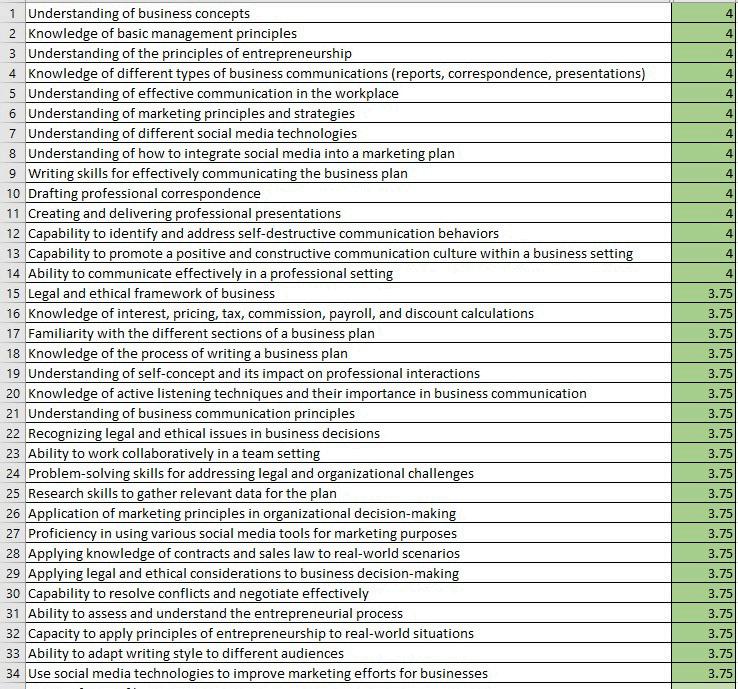


Business Administration KSA Data:
Number of KSA’s: 80
Collection method: Online tool
Date of collection: February through May 2025
Number of participants: Four
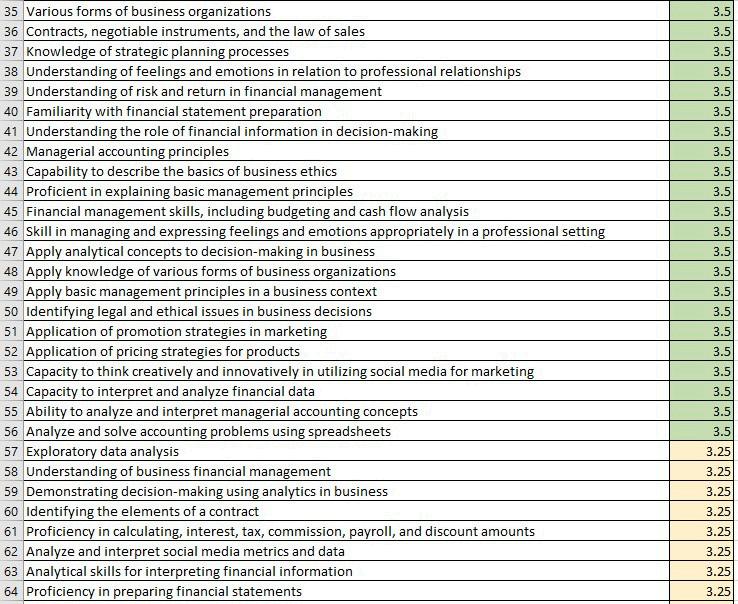

Business Administration KSA Data:
Number of KSA’s: 80
Collection method: Online tool
Date of collection: February through May 2025
Number of participants: Four

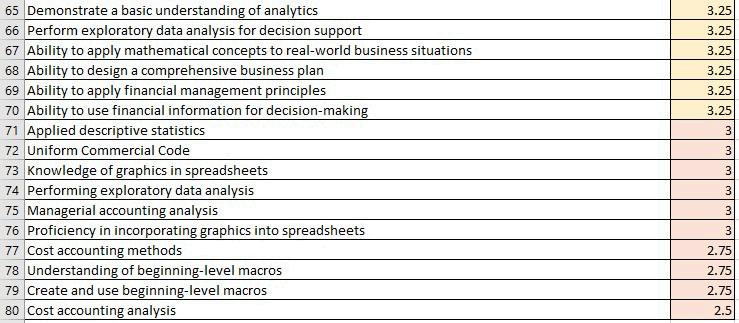
Qualitative Responses:
“Ability to work and communicate effectively with and within a team.”
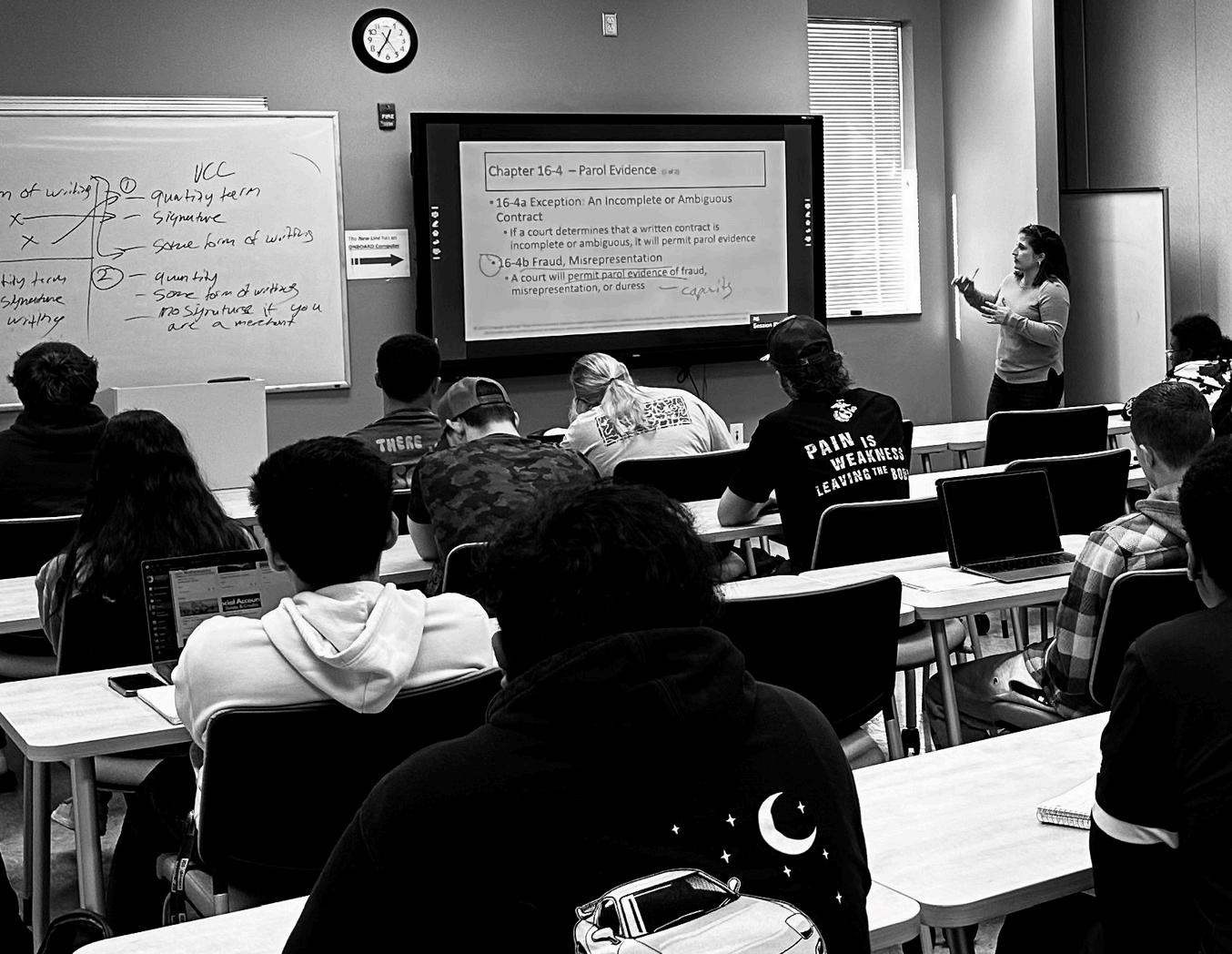

Accounting & Finance
Overview:
The Accounting and Finance program at Johnston Community College (JCC) in Smithfield, North Carolina, is designed to equip students with the essential knowledge and skills required for careers in the accounting and finance professions The curriculum focuses on the "language of business," enabling students to effectively assemble, analyze, process, and communicate vital financial information
PROGRAM OFFERINGS:
Associate Degree in Accounting and Finance:

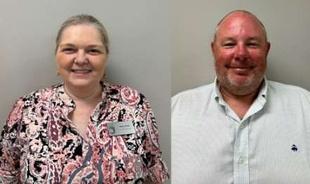

This comprehensive program covers key areas such as accounting principles, business law, finance, management,and economics.Studentsalso develop competencies in communication, computer applications, financial analysis, critical thinking, and ethics. The degree can be completed online, providing flexibility for students.
Diploma in Accounting and Finance:Offering a foundational understanding of accounting and finance, this diploma prepares students for entry-level positions in various organizations. The coursework includes principles of financial and managerial accounting, payroll accounting, and business law.
Certificates:
Johnston Community College offers focused certificate programs to prepare students for careers in accounting and finance. TheFinance Certificate teaches key financial principles such as statement analysis, time value of money, and risk assessment ideal for roles in bankingor corporate finance. The Governmental Accounting Certificate covers accounting procedures for government and nonprofit organizations, with emphasis on fund accounting and compliance The Income Tax Preparer Certificate provides practical training in federal tax law and return preparation for individuals, partnerships, and corporations. The Payroll Accounting Clerk Certificate focuses on wage laws, payroll taxes, and related accounting practices.
Career Opportunities:
Graduates ofthe Accounting and Finance program are prepared for entry-level positions in a variety of organizations, including accounting firms, small businesses, manufacturing companies, banks, hospitals, school systems, and governmental agencies. The program's emphasis on practical skills and realworld applications ensures that students are well-equipped to meet the demands of the modern financial landscape.


Accounting & Finance KSA Data:
Number of KSA’s: 65
Collection method: Online tool
Date of collection: February through May 2025
Number of participants: Eight


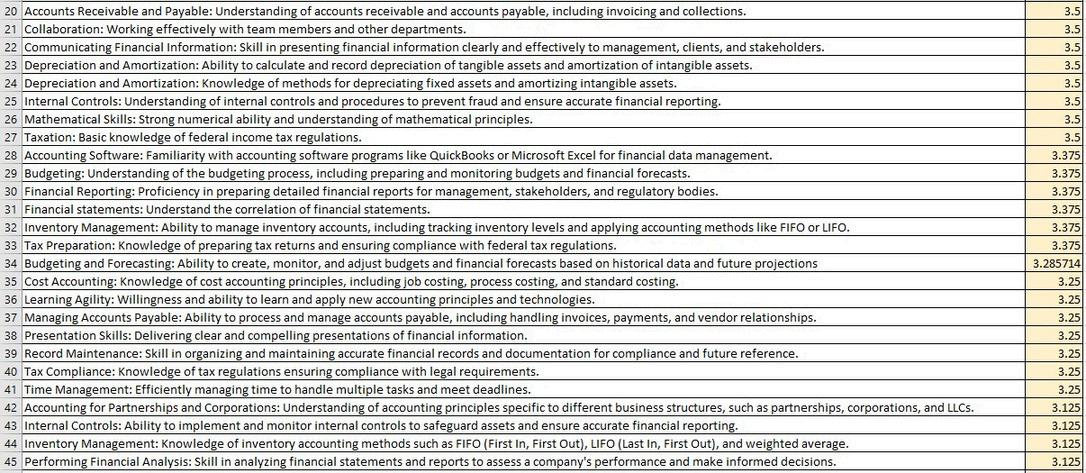
Accounting & Finance KSA Data:
Number of KSA’s: 65
Collection method: Online tool
Date of collection: February through May 2025
Number of participants: Eight



Accounting & Finance KSA Data: Qualitative Responses:
Number of KSA’s: 65
Collection method: Online tool
Date of collection: February through May 2025
Number of participants: Eight

“I think you got it covered well ”
“I think you included everything that is important when it comes to learning accounting!”

Gwen Green her Accounting goingovera case study with students.
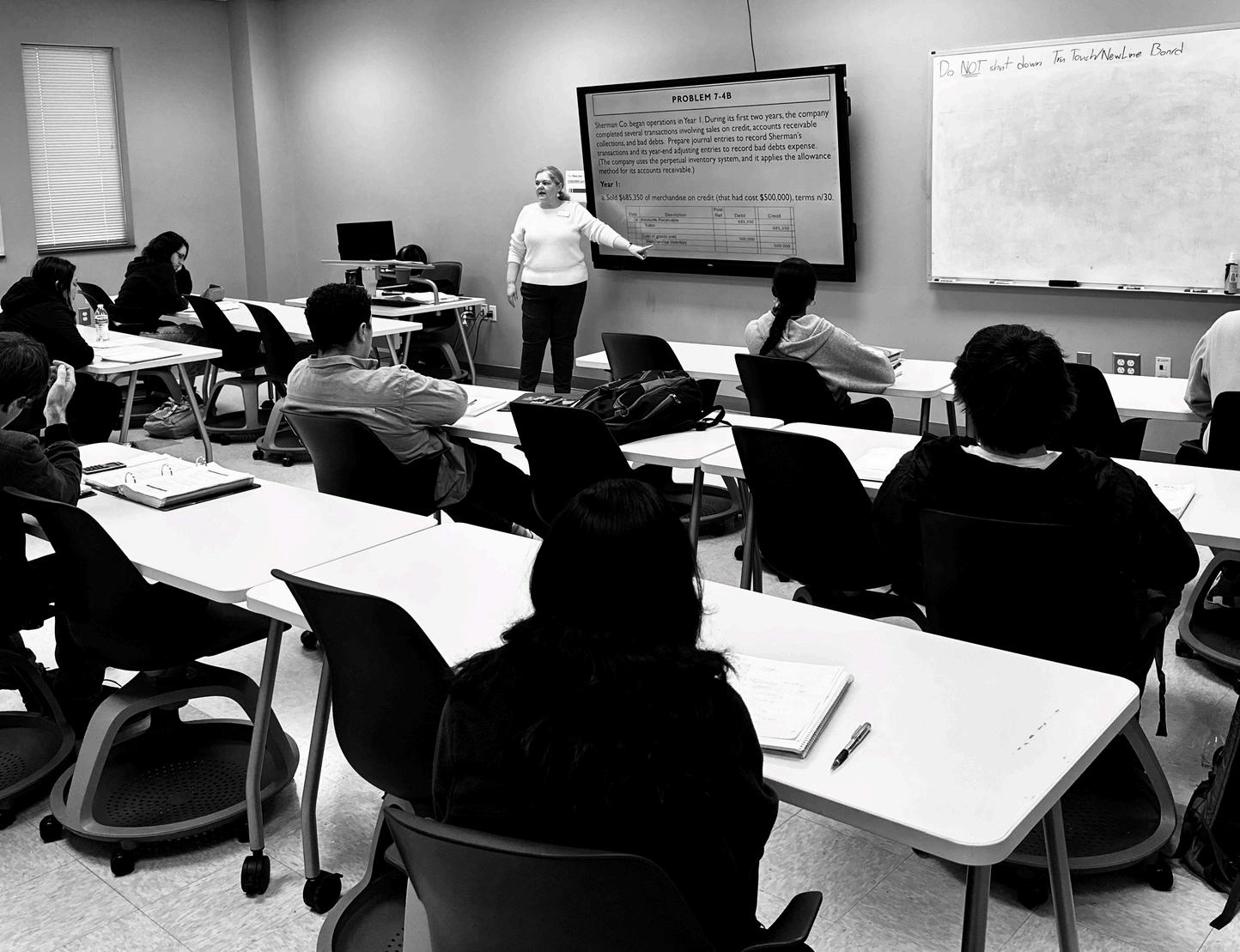

Digital Media
Overview:
The Digital Media Technology program at Johnston Community College (JCC) in Smithfield, North Carolina, is designed to prepare students for entry-level positions in the digital design and multimedia industry. The curriculum integrates multimedia, hypertext, computer programming, information architecture, and client/server technologies, providing a comprehensive education in both internetbased and non-network media.
PROGRAM OFFERINGS:
Associate Degree in Digital Media Technology:


This program emphasizes key concepts such as graphic design, multimedia applications, user interface design, andcontentstrategy.Studentsgainproficiency in industry-standard tools, including Adobe Photoshop, InDesign, WordPress, and various social media plaƞorms.
Certificates:
Graphic Design Certificate: Social Media Manager Certificate:
Focuses on developing skills in visual problem-solving, design principles, and the use of graphic design software. Concentrates on content strategy, adverƟsing design, copywriƟng, and social media markeƟng techniques
Career Opportunities:
Graduates areequipped for roles such as web designers, graphic artists/designers, multimedia specialists, web developers, content specialists, media specialists, digital media specialists, and animation specialists. The program's focus on current and emerging technologies ensures that students are prepared to meet the evolving demands of the digital media industry.
Program Highlights:
IndustryCollaboration: JCC has partnered with industry experts to ensure the curriculum aligns with current market needs, enhancing employability upon graduation. Flexible Learning Options: The program accommodates both traditional college students and dual-enrollment high school students, with no prior technology skills required State-of-the-Art Resources: Students have access to modern software and tools, including theAdobe suite and content management systems like WordPress, to develop practical, hands-on experience.

Digital Media KSA Data:
Number of KSA’s: 75
Collection method: Online tool
Date of collection: February through May 2025
Number of participants: Eight
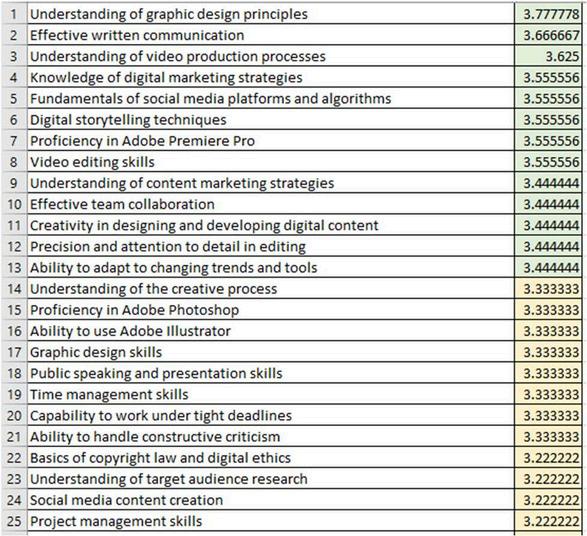


Digital Media KSA Data:
Number of KSA’s: 75
Collection method: Online tool
Date of collection: February through May 2025
Number of participants: Eight
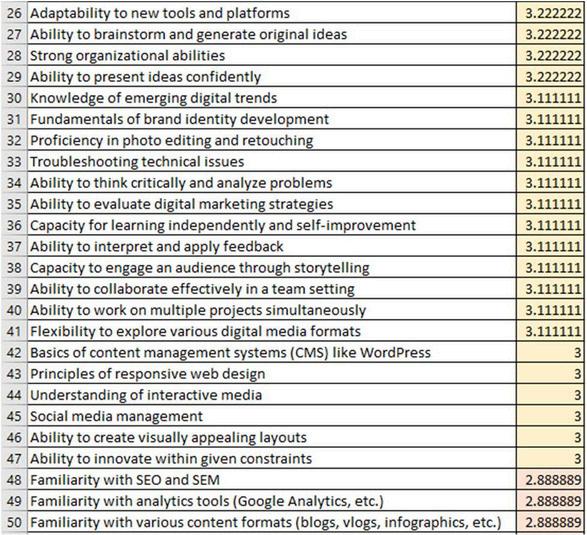


Digital Media KSA Data:
Number of KSA’s: 75
Collection method: Online tool
Date of collection: February through May 2025
Number of participants: Eight
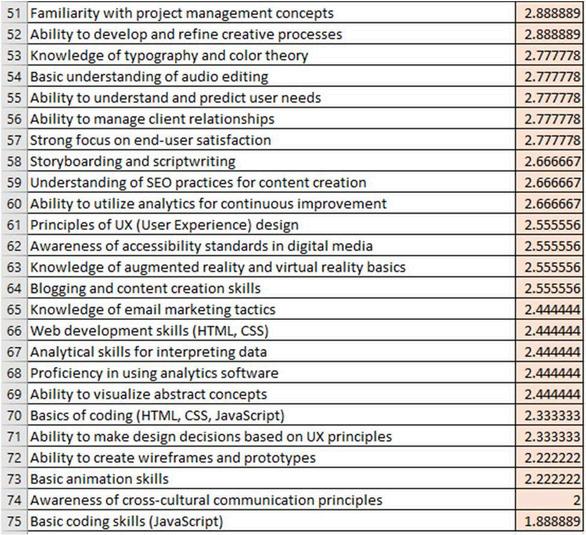


Dr. Ken Robol at a BILT Fall Retreat where theteamgot to drive 18-wheelers as a team building activity.


Paralegal Technology

The Paralegal Technology program at Johnston Community College (JCC) in Smithfield, North Carolina, is designed to prepare individuals to work under the supervision of attorneys by performing routine legal tasks and assisting with substantive legal work. It's important to note that paralegals may not pracƟce law, give legal advice, or represent clients in court.
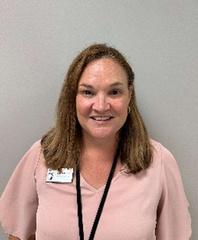
PROGRAM OFFERINGS:
Associate Degree in Paralegal Technology
The provides comprehensive training in areas such as civil litigation, legal research, real estate, familylaw, and estateplanning,along with general education in English, math, and computers. Graduates are prepared to assist attorneys with legal research, document preparation, probate, and office management. The Paralegal Technology Diploma is ideal for individuals with an associate’s or bachelor’s degree, offering focused legal coursework to develop core paralegal skills. The General Law Office Certificate, also for degree-holders, delivers targeted instruction in legal research, civil litigation, and estate law to prepare students for support roles in legal environments.
State Recognition:The degree and certificate programs are recognized by the North Carolina State Bar as qualified paralegal studies programs for purposes of certification. To meet certification requirements, students must complete at least nine semester hours of legal specialty courses through traditional in-person instruction at JCC.
Overview: Career Opportunities:
Graduates ofthe Paralegal Technology program are prepared for employment in various settings, including private law firms, governmental agencies, banks, insurance companies, and other business organizations. They are trained to assist attorneys with tasks such as probate work, investigations, public records searches, drafting and filing legal documents, research, and office management.


Paralegal Technology KSA Data:
Number of KSA’s: 54
Collection method: Online tool
Date of collection: February through May 2025
Number of participants: 12



Paralegal Technology KSA Data:
Number of KSA’s: 54
Collection method: Online tool
Date of collection: February through May 2025
Number of participants: 12



Paralegal Technology KSA Data:
Number of KSA’s: 54
Collection method: Online tool
Date of collection: February through May 2025
Number of participants: 12




Cosmetology
Overview:
The Cosmetology program at Johnston Community College (JCC) in Smithfield, North Carolina, offers comprehensive training for individuals aspiring to become licensed cosmetologists. The curriculum encompasses a wide range of beauty treatments and techniques, including hair styling, cutting, coloring, sculptured nails, skin care, permanent waving, and relaxing. Graduates are well-prepared to excel in the cosmetology industry upon successful completion of the program and the North Carolina State Board of CosmeƟc Art Examiners licensing examinaƟon.
PROGRAM OFFERINGS:
Associate in Applied Science (A.A.S.) Degree in Cosmetology:




This program requires the completion of 1,500 hours in cosmetology training, fulfillment of StateBoard-mandatedperformances,and15additionalgeneral education credit hours.
Diploma in Cosmetology: courses,includingcollegeorientaƟon,communicaƟonskills,and psychology.
Studentsmustcomplete1,500hours of cosmetology training, required State Board performances, and additional related
Thisprogramentails1,500hoursof cosmetology training, completion of State Board-required performances, and related
Certificate in Cosmetology: coursework.
Program Highlights:
The program features an on-campus salon where advanced students provide hair, nail, and waxing services to the public under instructor supervision.This real-world experience enhances student learning and offers affordable services to the community.
JCC Cosmetology Salon: Licensure Preparation:
Career Opportunities:
Graduates meet the educational requirements to take the state licensure examination offered by the North Carolina Board of Cosmetic ArtExaminers,ensuring they are well-prepared for professional pracƟce Upon passing the State Board Exam, graduates are qualified to work in various settings, including cosmetology salons and related businesses throughoutNorth Carolina. The comprehensive training equips students with expertise in hair styling, cutting, coloring, nail technology, skin care, and other essenƟal cosmetology services.


Cosmetology KSA Data:
Number of KSA’s: 88
Collection method: Online tool
Date of collection: February through May 2025
Number of participants: 11

Number of KSA’s: 88
Cosmetology KSA Data: Qualitative Responses: (1)
Collection method: Online tool
Date of collection: February through May 2025
Number of participants: 11

It was similarlylisted, but there is a big gap in the industry in understand the benefits of commission/ rental without influencing the students either way Students should be well educated on what it takes to build a clientele in both spaces and decide for themselves which environment fits their goals best Also self-promotion and advertising Students, in general, tend to lack the understanding of what promoting themselves andfinding clients looks like (2)Social media needs to be gone over, how to post attracting content and captions that draw the client in Hair cuts need to begone in depth with, pixies, bobs, angled bobs, how to properly hold your shears and standing positions, foils are huge they need to go all theway to the scalp with no bleed marks. No sloppy foiling. Blow dry’s need to be focused on hard as well. Not just getting the hair dry but giving it actual style and movement without a curling iron or flat iron. In depth consultations how to get from point A to point B. So many girls have no idea whereto even start with asking questions for the clients. Color theory is big too, i personally feel like every hair stylist struggles with it. Getting intothe theory behind why you do it and how to move the color around based on tones and hues. Get deep into not just the basics of what the color wheel is and what cancels each other out. (3)A focus on men’s [hair] cuts. (4)I think this is a good start. This response box is a great idea to give added input.


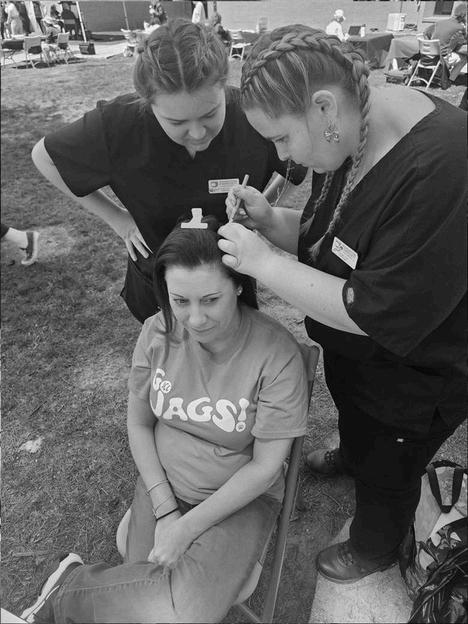

Diesel & Heavy Equipment

The Diesel and Heavy Equipment Technology program at Johnston Community College (JCC) in Smithfield, North Carolina, provides comprehensive training for individuals aiming to become skilled technicians in the maintenance and repair of medium and heavy-duty vehicles. The curriculum covers essential topics such as diesel engine theory, preventive maintenance, powertrains, brake systems, electrical systems, suspension and steering, and climate control systems. Graduates are well-prepared to enter the workforce as entrylevel technicians in dealerships, fleet shops, or independent garages. Additionally, those who meet the work experience requirements are eligible to take the ASE cerƟficaƟon exams.
PROGRAM OFFERINGS:
Associate in Applied Science (A.A.S.) Degree in Diesel and Heavy Equipment Technology:



This program offers an in-depth study of diesel engines, preventive maintenance, powertrains, brakesystems,electrical systems, suspension andsteering, and climate control systems.The A.A.S. degree is available in both day and night formats to accommodate varying student schedules.
Diploma in Diesel and Heavy Equipment Technology: The diploma program focuses on core competencies, including diesel engines, preventive maintenance, powertrains, brake systems, and electrical systems Like the A A S degree, the diploma is offered in both day and night formats
Overview: Certificates:
Introduction to Preventive Maintenance & Engines:Covers foundational knowledge in diesel engines and preventive maintenance practices.
Powertrain, Brakes & Electrical:Focuses on power transmission devices, brake systems, and basic electrical theory.
Advanced Vehicle Systems:Emphasizes maintenance and repair of suspension, steering, and climate control systems.
Fuel & Electronic Systems:Covers these specific systems.
Chassis & Body: Focus on the specifics of the body and chassis.
Career Opportunities: Graduates of the Diesel and Heavy Equipment Technology program at Johnston Community College are prepared for careers as automotive service technicians, bus and truck mechanics, diesel engine specialists, farm equipment technicians, heavy equipment mechanics, and rail car repairers. These roles are available in dealerships, fleet maintenance facilities, and independent repair shops.


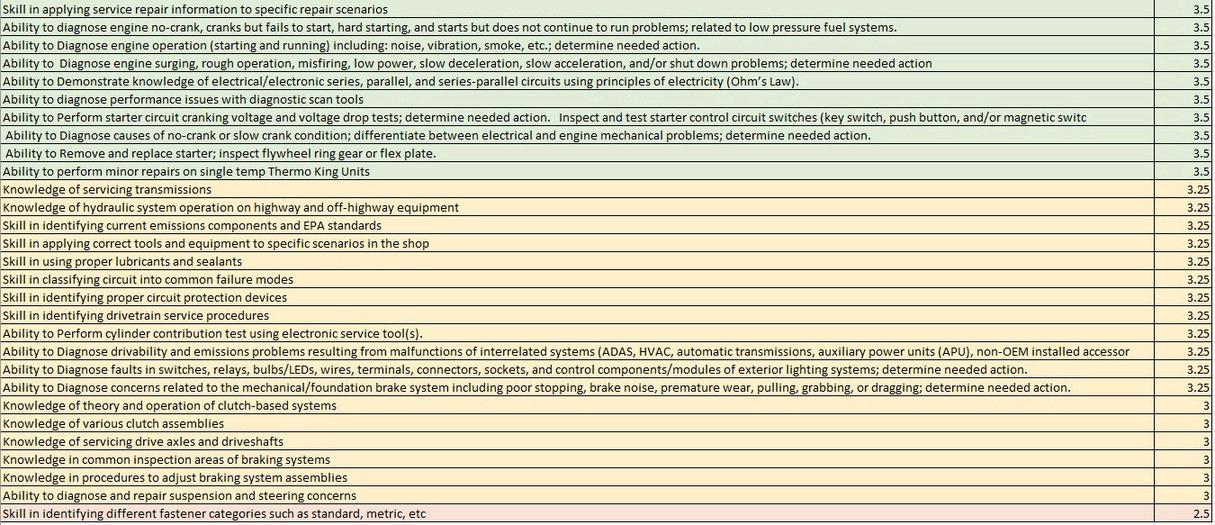


Information Technology
IT,Networking,Cybersecurity,andtheArtificialIntelligenceEngineer Pathway
PROGRAM OFFERINGS:
Associate in Applied Science (A.A.S.) Degree in Information Technology: Cybersecurity Concentration
Coversnetwork securityservices,ethical hacking,and threatanalysis Courses include operating systems, routing and switching, Python programming, and cybersecurity fundamentals like threat detection and incident response.
Network Management Concentration
Prepares students to support networks and data centers, with training geared toward industry certifications such as Cisco Certified Network Associate (CCNA) and Cisco Certified Network Professional (CCNP).
Artificial Intelligence Engineer Pathway (with WCC)
A joint program with Wayne Community College where students complete foundational coursework at JCC before advancing to AI-specific training at WCC Focus areas include machine learning, data analysis, and intelligent systems, blending cybersecurity and networking skills to prepare graduates for AI-driven careers.
Diploma and Certificates: Diploma in Information Technology:Provides foundational knowledge in IT, covering areas such as operaƟng systems, networking, and security. Certificates:Johnston Community College offers specialized IT certificates to prepare students for industry roles. The Cybersecurity Certificateintroduces foundational network and security concepts, while the Cybersecurity II Certificatebuilds on this with Python programming, secure communications, and security administration. The Cisco Networking Admin Certificate emphasizes routing and networking fundamentals. The General PC Support Technician Certificatetrains students in operating systems, hardware/software support, and basic network security equipping them for entry-level IT support positions.
Program Highlights:
Member oftheCarolina Cyber Network and awarded $280,000 in grant funding across three grants, 25 Year Member of the Cisco Regional Academy, Awarded over $1 2 million from the National Science Foundation (NSF) Advanced Technological Education (ATE) program across two grants awarded consecutively in 2024 and 2025, Designated a Center for Academic Excellence (CAE) from the National Security Agency (NSA).



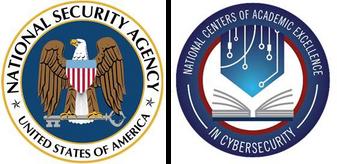






Qualitative Responses:
(1) class. (2)
Iwould have made it rank-based because time is limited, which would force us to choose what can reasonably be covered in a Entry-level Cloud Security, AI Security, and Threat Modeling (STRIDE). (3) IT Certifications. (4)Responsible use of commodity AI and data collection platforms such as VirusTotal. (5) The topics were well covered overall. (6)Teaching about automation, including Python, Ansible, and Bash, would be good. (7)A lot was covered here, but I would recommend more practicality as well as a solid foundation for understanding systems. Communication is also important, and students should feel comfortable admitting when they did something wrong. (8)Ability to decipher code suggestions from AI bots. (9)Although VMware and ESXiwere already mentioned, I believe that Docker and containers should also be taught. These are increasingly being used instead of VMs in many situations, so covering Docker, containers, Kubernetes, and similar technologies would be valuable.


Medical Office Administration
Overview:
The Medical Office Administration program at Johnston Community College (JCC) in Smithfield, North Carolina, prepares students for administrative careers in healthcare environments such as hospitals, clinics, physician practices, and insurance companies The curriculum emphasizes medical terminology, billing and coding, electronic health records, insurance procedures, healthcare law, and office management. Graduates are equipped to ensure the smooth operation of medical offices and support the delivery of quality patient care through accurate administrative practices.
PROGRAM OFFERINGS:
Associate in Applied Science (A.A.S.) Degree in Medical Office Administration:


Thiscomprehensive program develops skillsinoffice procedures,medical coding, health insurance, medical terminology, and software applications. Students are trained in managing health information, preparing insurance forms, scheduling appointments, and handling patientbilling. The A.A.S. program supports pathways to national certification and employment in a wide variety of healthcare settings.
Diploma in Medical Office Administration:
Thediplomaprogramoffers focusedtraining in essential administrative functions including medical office procedures, basic billing and coding, and electronic medical records. It is designed for students seeking quicker entry into the workforce while maintaining flexibility to pursue the A.A.S. degree later.
Certificates:
•
Medical Insurance Billing and Coding: Covers CPT, ICD, and HCPCS coding systems and billing processes.
Electronic Health Records (EHR): Focuses on the use of EHR systems and maintaining patient data security.
Medical Office Procedures: Introduces scheduling, filing, communication, and medical record-keeping practices.
Career Opportunities
Graduates oftheMedical Office Administration program at Johnston Community College are prepared for careers in a wide variety of healthcare and administrative settings, including hospitals, doctor’s offices, specialty clinics, nursing homes, and insurance companies. Professionals in this field play a vital role in the healthcare industry by compiling, processing, and maintaining patient files while ensuring accuracy, confidentiality, and compliance.





Culinary Arts
Overview:
The Culinary Arts program at Johnston Community College (JCC) in Smithfield, North Carolina, offers hands-on, industry-aligned training for students pursuing careers in the culinary and hospitality fields. The curriculum combines classical cooking techniques with modern food preparation, sanitation practices, and kitchen management. Students gain real-world experience in commercial kitchens, preparing them to enter a competitive workforce with the technical and soft skills required in today’s food service industry.
PROGRAM OFFERINGS:
Associate in Applied Science (A A S ) Degree in Culinary Arts:


This comprehensive program provides instruction in foundational and advanced culinary skills,includingbakingand pastry arts, gardemanger, nutrition, menu design, cost control, and restaurant operations. Emphasis is placed on both practical cooking techniques and the business aspects of culinary management The A A S degree prepares students for supervisory roles in commercial kitchens and institutional foodservice operations.
Diploma in Culinary Arts: The diploma track focuses on core culinary competencies, such as food preparation, safety and sanitation, and introductory baking. It serves as an efficient pathway for students seeking entry-level employment or those who wish to build toward the fullA.A.S. degree.
Certificates: Basic Culinary Skills: Covers knife skills, cooking methods, and food safety fundamentals. Baking & Pastry Arts:Focuses on artisan breads, pastries, desserts, and baking techniques. Restaurant Operations: Includes kitchen organization, purchasing, and cost control methods. International Cuisine: Emphasizes preparation of global dishes and cultural food practices
Career Opportunities: Graduates of the Culinary Arts program at JCC are prepared for a range of roles in the food service industry, including line cooks, prep chefs, bakers, pastry assistants, catering staff, and kitchen managers Employment opportunities exist in restaurants, hotels, resorts, bakeries, healthcare facilities, corporate kitchens, and entrepreneurial ventures. The program also lays the groundwork for students interested in pursuing certifications through the American Culinary Federation (ACF).




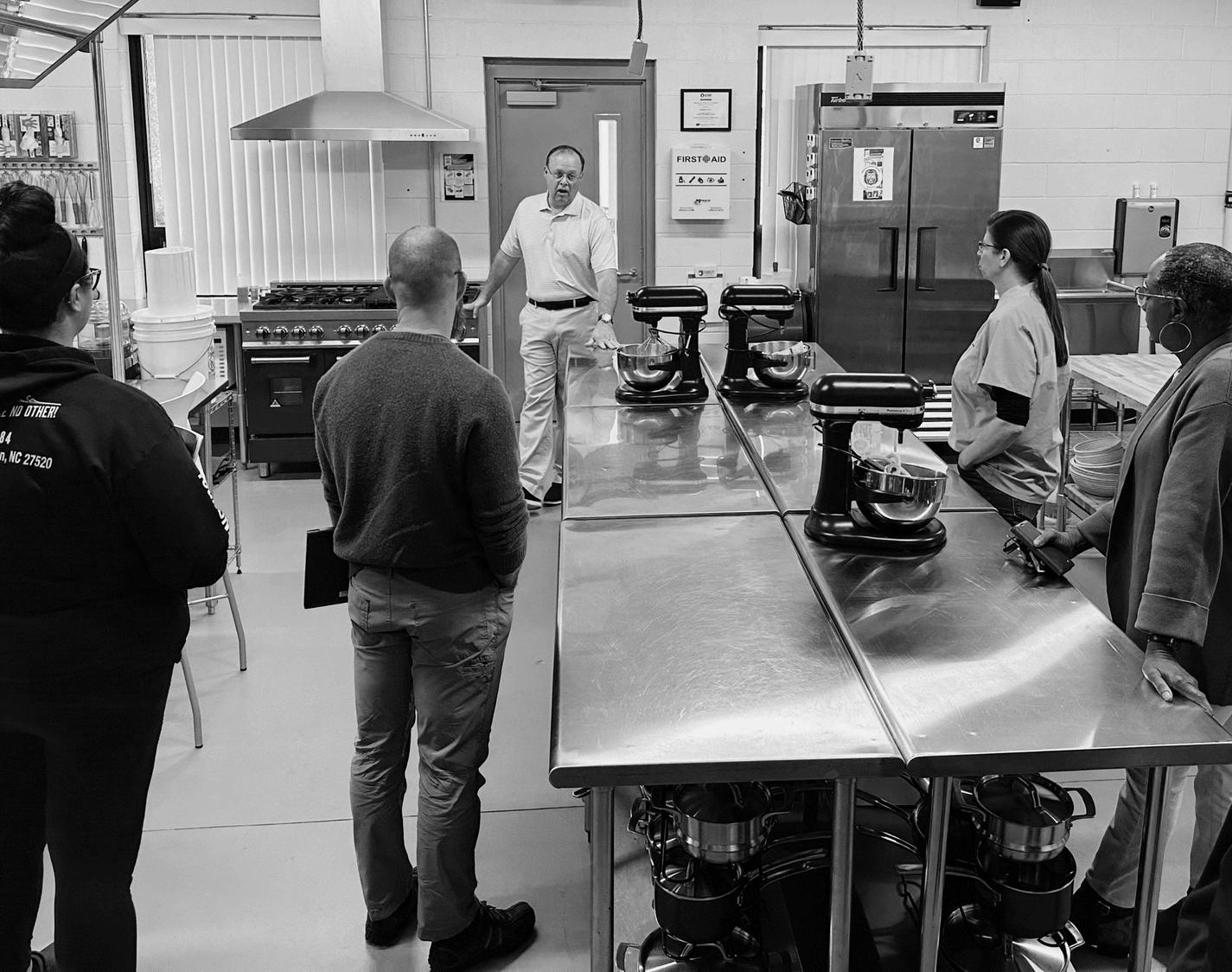
The Culinary Arts program held it’s first advisory committee meeting, where representatives from various aspects of the food service industry were present. Chef is giving a tour of the kitchen facility
Computer-Integrated Machining
Overview:
The Computer-Integrated Machining program at Johnston Community College (JCC) in Smithfield, North Carolina, provides students with the skills and knowledge required to operate, program, and maintain precision manufacturing equipment The curriculum blends manual machining fundamentals with advanced computer numerical control (CNC) processes, blueprint reading, CAD/CAM software, and quality control techniques. Graduates are equipped to support modern manufacturing operations that rely on high-precision parts and automated systems.
PROGRAM OFFERINGS:
Associate in Applied Science (A.A.S.) Degree in Computer-Integrated Machining:


Thisdegree programoffers an in-depth study of machiningprocesses,including manual lathe and mill operations, CNC setup and programming, geometric dimensioning and tolerancing (GD&T), and metrology. Students also learn to use software such as Mastercam and SolidWorks to create complex parts and tooling. The A.A.S. degree prepares graduates for advanced roles in manufacturing environments and providesa strong foundation for career growth.
Diploma in Computer-Integrated Machining:
Thediploma trackfocusesonkeymachining operations, CNC programming basics, safety protocols, and blueprint reading. It isdesigned for those seeking faster entry into the machining field or as a stepping stone toward the A A S degree
Certificates:
•Manual Machining:
•CNC Machining:

Coversbasicoperation of manual mills, lathes, and grinders.
FocusesonCNCmachine setup, operation, and G-code programming.
•CAD/CAM Applications:
Emphasizescomputer-aided design and manufacturing using industry software.
•Precision Measurement & Inspection:
Career Opportunities:
Teaches the use of calipers, micrometers, and coordinate measuring machines (CMMs)
GraduatesoftheComputer-Integrated Machining program at Johnston Community College are prepared for careers in modern manufacturing environments where precision and automation are critical. Typical roles include CNC machinist, tool and die maker, manufacturing technician, quality control inspector, CAD/CAM programmer, and maintenance technician. Employment opportunities exist in aerospace, automotive, medical device manufacturing, defense industries, and other advanced manufacturing sectors. Graduates are also well-positioned to pursue industry-recognized credentials and may advance into supervisory or specialized technical positions with additional experience.



Computer-Integrated Machining KSA Data: Number of KSA’s: 75 -Collection method: Online tool Februarythrough May 2025 -Number of participants: 2 -Date of collection:

Computer-Integrated Machining KSA Data: Number of KSA’s: 75 -Collection method: Online tool February through May 2025 -Number of participants: 2 -Date of collection:
Qualitative Responses: Industry partners affirmed the curriculum without further comment.


Applied Engineering
Overview:

The Applied Engineering program at Johnston Community College (JCC) in Smithfield, North Carolina, prepares students for careers in advanced manufacturing, industrial maintenance, and engineering technology This handson program emphasizes problem-solving, process improvement, and technical proficiency across mechanical, electrical, and automation systems. Students gain practical experience with industry-relevant tools and technologies, making them well-suited for a rapidly evolving and technology-driven workforce.
PROGRAM OFFERINGS:
Associate in Applied Science (A.A.S.) Degree in Applied Engineering Technology:


Faculty: Jamie Phillips, Kevin Sloan, and Ed Sanderford
Thiscomprehensive degreeprogram includescoursework in mechanical systems,electronics, fluid power, programmable logic controllers (PLCs), robotics, computeraided design (CAD), and quality assurance. Students also develop skills in troubleshooting, project planning, and industrial safety. The A.A.S. program is designed to support immediate workforce entry or continued education in engineering or technology-related fields.
Diploma in Applied Engineering Technology:
Thediplomaoption deliversfoundational training in core technical areas such as mechanical systems, electrical circuits, and industrial instrumentation. It is ideal for individuals seeking a streamlined path to entry-level technician roles in manufacturing or maintenance environments
Certificates:
•
•
• • Basic Mechatronics: Industrial Systems Maintenance: Electrical Systems: Automation & Controls:
Focusesonintegrating mechanical, electrical, and control systems.
Covers preventative maintenance and repair of industrial equipment
Offerstrainingin wiring, circuit design, and electrical troubleshooting. Emphasizes PLC programming, sensors, and industrial automation.
Career Opportunities:
Graduates ofthe Applied Engineering program at JCC are equipped for careers as engineering technicians, maintenance technicians, industrial electricians, automation specialists, manufacturing technicians, and systems installers. Employment opportunities exist in advanced manufacturing, aerospace, automotive, utilities, food processing, and industrial automation sectors. The program aligns with the needs of local and regional employers, offering a strong pipeline to high-demand technical careers



Qualitative Responses: I would recommend that if other classes cover blueprint reading/P&ID’s and how to interpret them, maybe replacing blueprint reading with another course that is in line with maintenance activities
Heating and Air Conditioning (HVAC)
Overview:
The Heating, Ventilation, and Air Conditioning (HVAC) program at Johnston Community College (JCC) in Smithfield, North Carolina, prepares students for careers in residential, commercial, and industrial climate control systems The curriculum combines theoretical knowledge with hands-on training in system installation, maintenance, troubleshooting, and repair. Students learn to work with heating systems, air conditioning units, heat pumps, electrical controls, and refrigeration systems all aligned with industry standards and safety practices.
PROGRAM OFFERINGS:
Associate in Applied Science (A.A.S.) Degree in Air Conditioning, Heating & Refrigeration Technology:
Faculty: Wayne Hardin, Isai Sevilla Castro, and Michael Gregory
Thisdegree programoffers comprehensive trainingin HVAC system design, diagnostics,airflowmeasurement, energy efficiency,and EPA regulations Students gain skills in both residential and light commercial systems, along with instruction in electrical circuits, schematics, and automated control systems. The A.A.S. degree prepares students for advanced technical positions or leadership roles in the HVAC field.
Diploma in Air Conditioning, Heating & Refrigeration Technology:
Thediplomaprovides targeted instructioninthe core areas ofheating and cooling systems, including installation techniques, troubleshooting procedures, and refrigerant handling. It is ideal for those seeking quick entry into the workforce while maintaining the option to continue toward a full A.A.S. degree.
Certificates:
•
•
•
• HVAC Fundamentals: Electrical for HVAC: Heat Pumps & Gas Furnaces: EPA Refrigerant Certification Prep:
Career Opportunities:
Coversbasicheating and cooling principles, system components, and safety. Focusesonelectrical systems, wiring, and controls specific to HVAC equipment. Provides training on installation, service, and repair of heat pumps and gas heating systems Prepares students for the EPA Section 608 exam, required for handling refrigerants.
Graduatesof JCC’s HVACprogram are qualified for roles such as HVAC technicians, installers, service technicians, refrigerationmechanics, and maintenance specialists Opportunities exist in residential HVAC companies, commercial service providers, facilities maintenance, and industrial systems operations. The program also prepares students for industry-recognized certifications, including EPA Section 608 and NC licensing exams.



HVAC KSA Data:
Number of KSA’s: 74
Collection method: Online tool
Date of collection: February through May 2025
Number of participants: 7
Qualitative feedback: “Emphasize soft skills ”



Welding Technology
Overview:
The Welding Technology program at Johnston Community College (JCC) in Smithfield, North Carolina, provides students with the technical skills and practical experience needed to succeed in a wide range of welding and metal fabrication careers. The program emphasizes hands-on training in various welding processes including SMAW (stick), GMAW (MIG), GTAW (TIG), and FCAW (flux-cored), along with blueprint reading, metallurgy, and safety procedures Students are prepared for industry certification and immediate employment in construction, manufacturing, and fabrication settings.
PROGRAM OFFERINGS:
Associate in Applied Science (A.A.S.) Degree in Welding Technology:
This comprehensiveprogramoffers instructionin advancedweldingtechniques, welding symbols and specifications, fabrication practices, and inspection methods. Students also study metallurgy, quality assurance, and automated welding technologies. The A.A.S. degree prepares graduates for supervisory roles or specialized welding careers that require both technical and leadership skills
Diploma in Welding Technology:



Thediploma programfocuseson core welding competencies, including plate and pipe welding, joint design, safety standards, and blueprint reading It serves as an efficient path for students seeking to enter the workforce quickly or build toward the A.A.S. degree.
Certificates:
•Basic Welding:
Coversintroductorywelding processes and safety fundamentals.
•Intermediate Welding Applications:
•Pipe Welding:
•Welding Fabrication:
Focuses on advanced techniques and metal types.
Specializesinthewelding of pipes for construction and industrial systems. Emphasizescutting, fitting, and assembling metal components
Career Opportunities:
Graduatesof theWelding Technologyprogram at JCC are qualified for positions as welders, fabricators, pipefitters, structural welders, and welding inspectors. Employment opportunities exist in construction, shipbuilding, aerospace, automotive manufacturing, metal fabrication shops, and maintenance departments The program also prepares students for certifications through the American Welding Society (AWS), enhancing their competitivenessinthe job market


Welding KSA Data:
Number of KSA’s: 35
Collection method: Online tool
Date of collection: February through May 2025
Number of participants: 5
Qualitative feedback:(1) Professional Conduct (2) Would be nice to have students come in with some knowledge of proper tool usage including different types of grinders and how to properly care for tools and the weak points or common breaking points.



Closing Summary and Next Steps

As we move forward, our focus will be on ensuring that the valuable insights gained through the BILT process are put into action. First, we will share this report with both our internal stakeholders and our external industry partners. Their feedback will guide us in adapting and refining our programs to better align with the evolving needs of industry.
In addition, we will share the outcomes of this year’s work across our campus community. By highlighting the benefits of the BILT model, we hope to encourage other programs to explore adopting this approach, further strengthening the connection between our college and the workforce it serves.
Finally, we will revise the Knowledge, Skills, and Abilities (KSA) lists for each program based on the input from both faculty and industry partners. These revised KSAs will form the basis of our data collection for the 2025–2026 academic year, ensuring that our programs remain responsive, relevant, and forward-looking.
Through these efforts, we remain committed to fostering strong collaboration between education and industry, equipping our students with the tools they need to succeed, and positioning our programs to meet the challenges of tomorrow’s workforce.

APPENDIX A:Limitations
While the feedback gathered from industry partners provides valuable insights, there are several potential limitations to consider in the data collection process.
(1)Participation levels may be limited, resulting in a smaller sample size that may not fully represent the diversity of perspectives across sectors or company sizes.
(2)Additionally, response bias can occur if certain partners are more engaged than others, leading to an overrepresentation of specific industries or larger employers while overlooking smaller businesses.
(3)The quality and consistency of the Knowledge, Skills, and Abilities (KSAs) provided may also vary, with some feedback being too general, too company-specific, or lacking alignment with broader industry trends.
(4)Timeliness poses another challenge, as industry needs can evolve quickly, and collected data may become outdated before curricular changes are implemented. Furthermore, recommendations from industry may not always align with academic structures, accreditation standards, or resource limitations, making integration difficult. In some cases, industry partners may only provide surface-level input without sufficient context, reducing the depth of engagement needed for actionable changes.
(5) Differences in terminology between academia and industry can also complicate interpretation, while variations in industry involvement across programs may make it difficult to ensure comparability.
Taken together, these limitations highlight the importance of ongoing communication, broad participation, and careful analysis when revising KSAs to ensure they remain relevant and applicable.
APPENDIX B:Data & Methodology

If you are interested, all the data collected from each program can be found at the link or QR code on the right. Additionally, we used Microsoft Forms to create a survey instrument for each program, which are linked at the bottom right of this page, or you can also use the QR code.
The BILT Model calls for a methodology that includes live meetings when voting on KSAs. The JCC team recognized that while live voting fosters relationship-building with industry partners, it was not feasible due to time constraints, as these sessions typically last two to three hours.
As a modification, JCC developed survey instruments that allow industry partners to review and rank KSAs at their convenience using a cell phone, computer, or tablet. Additionally, during the Spring 2025 BILT advisory meeting, surveys were presented for each program through QR codes placed on meeting tables, enabling partners who had not yet voted to complete the process on-site.
Although these adjustments represent a departure from the original BILT Model, the JCC team believes this approach preserves the model’s intent and purpose while improving accessibility and efficiency.

APPENDIX D:Contacts

For more information about individual programs, please reach out to the following individuals below.
Brian Worley: Ryan Bradshaw, Ed.D:
Applied Engineering
Mechanical Engineering
Computer-Integrated Machining
Heating and Air Conditioning (HVAC)
--beworley@johnstoncc.edu
Welding Technology
krbradshaw@johnstoncc.edu
Business Administration
Accounting & Finance
Paralegal Technology
Digital Media
Information Technology, Networking, and Cybersecurity
Medical Office Administration
Culinary Arts
Cosmetology

APPENDIX F:
Frequently Asked Questions (FAQ’s)
Q1. What is the BILT Model, and how is it different from a traditional advisory committee?

Q2. How often is KSA data collected and updated?
A:Annually, throughsurveys andmeetings with industry partners, ensuring continuous improvement and adaptation to labor market needs.
Q3. How many KSAs were reviewed this year at JCC, and by how many partners?
A: In 2025, approximately865KSAswerevalidatedacross13
A: BILT(Business & IndustryLeadershipTeams) gives employers a co-leadership role in identifying the KSAs most needed in the workforce, ensuring curriculum is aligned with current and emerging industry demand. programs, with industry partner participation ranging from 2–12 per program.
Q4. How does this impact students directly?
A: Graduates leave withboth technicaland soft skills validated by employers, which increases employability, supports internships, and strengthens job placement pipelines
Q5. How does this benefit JCC strategically?
A:TheBILT ModelstrengthensJCCcaseforNSF grants, supports accreditation requirements, and differentiates JCC as a leader in workforce education within NCCCS.
Q6. How will JCC address programs with fewer industry participants?
A:By expandingoutreach,buildingadditionalpartnerships, and continuing to refine participation strategies (QR codes, online tools, etc.).
Q7. Can this model be expanded to other programs at JCC?
A: Yes,the intentis tosharelessonslearnedwithotherdivisions to promote broader adoption.
APPENDIX G:Strategic Impact of the BILT Model
Funding and Grant Competitiveness
NSF Advanced Technological Education (ATE):The BILT Model is directly supported by NSF as a best practice. Embedding it across JCC programs strengthens current grant performance and makes future proposals more competitive by demonstrating systematic employer engagement.
Accreditation and Quality Assurance
Program Accreditation Support:Accrediting bodies and state-level program approvals increasingly demand proof of employer validation. The BILT process provides documented evidence of industry-aligned KSAs, which bolsters program review cycles and accreditation reports.

Perkins V Funding: Perkins emphasizes measurable labor market alignment and employer partnerships. BILT’s data-driven KSA process provides tangible evidence of compliance, which reinforces JCC’s case for continued and expanded funding.
Industry Partnerships: Stronger ties with employers open doors to donations, equipment sponsorships, internships, and advisory roles, further reducing program costs while enhancing student opportunities.
Continuous Improvement:The annual BILT cycle ensures that programs are not static, but adaptive. This systematic feedback loop demonstrates a culture of responsiveness valued by accrediting agencies.
Faculty Development:By engaging faculty directly with industry partners, BILT fosters professional currency and ensures curriculum remains ahead of accreditation benchmarks.
APPENDIX G:Strategic Impact
(continued)
Institutional and Regional Reputation
Regional Differentiator:Few North Carolina community colleges have adopted the BILT Model at this scale across so many disciplines. This positions JCC as a regional innovator in employerdriven curriculum design.

Statewide Recognition:Within the North Carolina Community College System (NCCCS), JCC’s BILT implementation can be showcased as a model of best practice, aligning with statewide workforce and economic development priorities.
National Visibility:By connecting to NSF ATE, Mentor-Connect, and national BILT Alliance networks, JCC demonstrates leadership at a national level, raising the college’s profile among peer institutions and funders.
Strategic Positioning Going Forward
The BILT Model is more than an advisory mechanism it is a strategic frameworkthat:
• • • Aligns JCC programs directly with workforce needs and allows for real-time adjustments.
Demonstrates accountability to funders, accreditors, and policymakers.
Builds trust with regional employers, students, and the broader community.
Through this lens, BILT is not simply about improving individual programs. It is a core differentiatorthat enhances JCC’s case for future funding, reinforces compliance with state and federal standards, and elevates the college’s reputation as a leader in workforce education.
APPENDIX H:
Glossary
BILT (Business and Industry Leadership Team)
An employer-led advisorymodel whereindustry representatives guide curriculum development by identifying and prioritizing Knowledge, Skills, and Abilities (KSAs) needed in the workforce.
CTE (Career and Technical Education)
Programs that prepare studentsfor careers in current or emerging occupations by combining academic knowledge with technical and occupational skills
KSA (Knowledge, Skills, and Abilities)
The competencies identifiedby industry partners as critical for workforce readiness. Knowledge refers to concepts and facts; skills to hands-on capabilities; abilities to broader aptitudes.
Advisory Committee
Agroup ofindustryand community representatives who provide guidance and feedback to align academic programs with workforce needs In the BILT model, the advisory committee is elevated to a leadership role
Perkins V (Strengthening Career and Technical Education for the 21st Century Act)
Federallegislationthat provides fundingto supportCTE programs in community colleges and K-12 schools.
Work-Based Learning (WBL)
Aninstructional strategy thatprovides students with realworld experiences in the workplace, often through internships, apprenticeships, or cooperative education
Credentialing/Certifications
Industry-recognized credentials that validate a student’s knowledge and skills, such as CompTIA, AWS, Cisco, or state licensures.
Pathways
Structuredsequences of courses and experiences that lead to a credential, degree, or employment in a specific career field.
Stackable Credentials
Credentialsthatbuild upon each other, allowing students to progress from certificates to diplomas to associate degrees, often with the option of transferring to a four-year institution
NCCCS (North Carolina Community College System)
Thestatewide systemof 58 communitycollegesinNorth Carolina, which oversees program approval, funding, and performance standards for CTE programs.
Program of Study
Anapprovedsequence of CTE courses that align with workforce needs and lead to a degree, diploma, or certificate.
Labor Market Alignment
Theprocessof ensuring that CTE programs are responsive to local, regional, and state workforce needs, often measured through employer engagement and labor market data.

Soft Skills
Non-technical skills such as communication, teamwork, and problem-solving, often emphasized by industry partners as essential for student success in the workplace.
Industry Partner
Employers, associations, or other stakeholders who collaborate with colleges to align academic programs with workforce demands.
Curriculum Standards
TheNCCCS-approvedguidelines that define competencies, learning outcomes, and credit requirements for each CTE program
CAE (Center of Academic Excellence)
Afederal designation for institutions that meet rigorous standards in cybersecurity education and workforce development, often relevant for IT and cybersecurity-related programs.

A digital version of this report is available for download:
Johnston Community College is accredited by the Southern Association of Colleges and Schools Commission on Colleges to award the associate degrees, diplomas, and certificates. Questions about the accreditation of Johnston Community College may be directed in writing to the Southern Association of Colleges and Schools Commission on Colleges at 1866 Southern Lane, Decatur, GA 30033-4097, by calling (404) 679-4500, or by using information available on SACSCOC's website (www.sacscoc.org).
Johnston Community College is an equal educational and employment opportunity institution.
